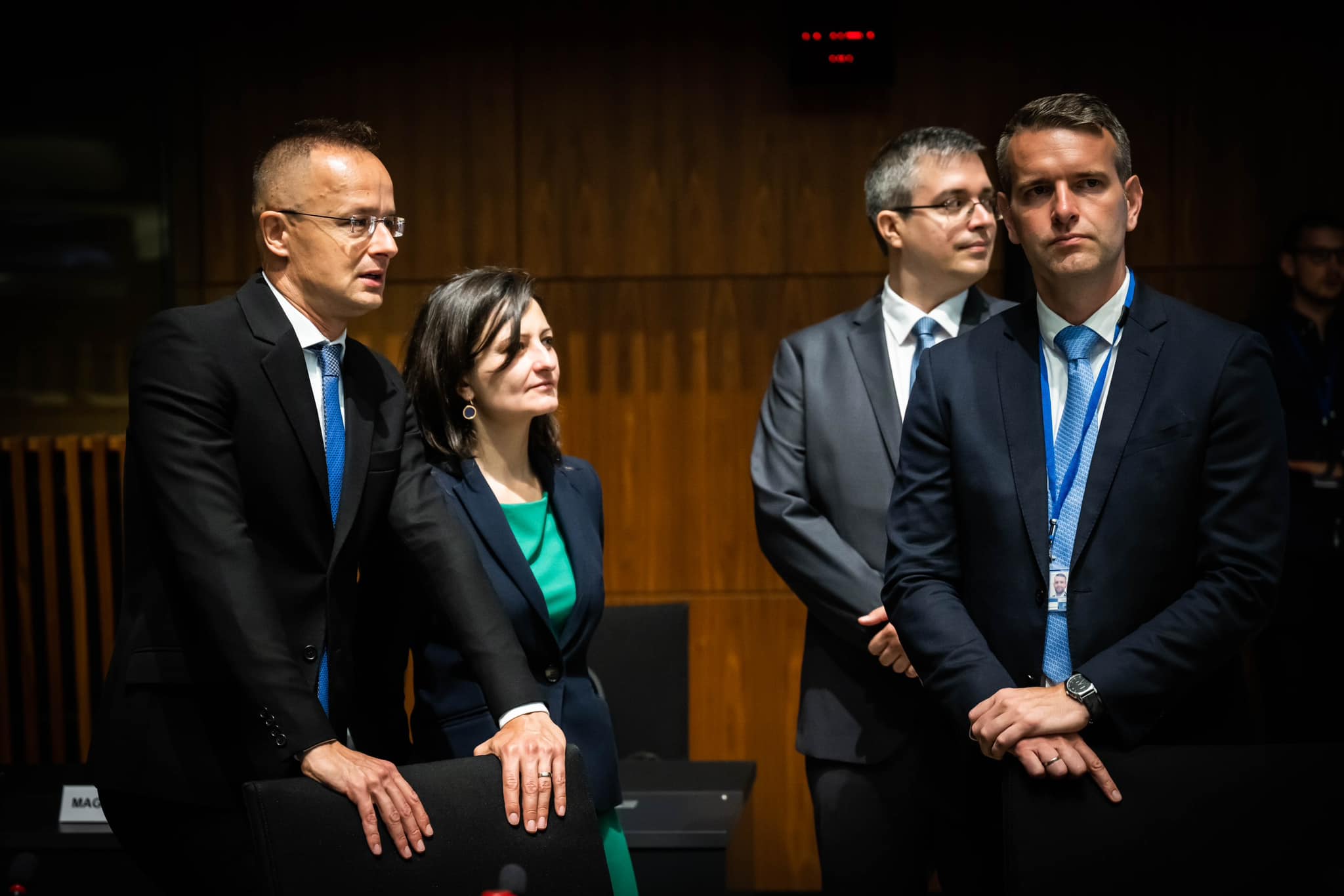Hungary will vote no to the European Commission's proposal on the reform of the electricity market, which would take away the right of member states' governments to keep electricity prices low, Minister of Foreign Affairs and Trade Péter Szijjártó said in Luxembourg on Monday.
According to a statement by the Foreign Ministry, the minister underlined at a press conference during a break in the EU energy council that the situation on the continent's energy market remains extremely fragile due to the war in Ukraine and the sanctions response, with gas prices rising again, well above the historical average, even though they are well below last year's peak.

Capacity to receive liquified natural gas (LNG) is not being built fast enough, while demand has been boosted by the lifting of restrictions in East Asia due to the coronavirus epidemic, and weather is a major uncertainty, not only for next winter but also for the water use needed this summer, he said.
"In this situation, the Hungarian government has a dual purpose and responsibility. Firstly, we have to ensure the stability of Hungary's energy supply, and secondly, we have to ensure that the results of the cuts in the energy bill are protected," he said.
"Unfortunately, recently there has been a serious attack from Brussels on the Hungarian cuts, and today we are faced with the legislative proposal of the Brussels attack on the Hungarian cuts," he added, referring to the debate on the electricity market reform, which has just started.
He explained that the European Commission's proposal would take away the right of member states to protect their citizens from high energy prices, and that Brussels wants to take the right to decide when there is an energy crisis and whether to allow a state to introduce a price cut. In his words, "this would be an extremely serious step backwards from the current situation".
"This is nonsense, because one of the main lessons of the last period was precisely that member states, countries, can help by being aware of the situation and reacting quickly," he said.
"Member states' own decisions can be the solution to the difficulties. Not the extremely long, extremely cumbersome, extremely bureaucratic procedures in Brussels," he said.
Szijjártó recalled that Hungary has previously won a case in the European Court of Justice on this issue, which shows that the Brussels body has no right to take away this national competence.
"We Hungarians insist on this national competence, we insist on deciding for ourselves when to apply reduced overheads," he said.
"The Hungarian people pay the lowest overheads in Europe. And we want to maintain this situation and we will maintain it," he warned. "For us, it is completely unacceptable that Brussels should take away this right, so we will of course vote against the draft electricity market reform," he added.
The minister also referred to the confrontation over nuclear energy, pointing out that the attacks had not gone away, but that a fairly strong nuclear coalition had been formed under the leadership of France, with Hungary among the participants.
"Without nuclear energy, there is no security of supply in Europe, without it, it is absolutely impossible to achieve our environmental objectives," he said, underlining that the German government had again come forward with an initiative to impose sanctions on Russia's Rosatom.
He stressed that half of Hungary's electricity consumption is supplied by the Paks power plant, so if this proposal is formally tabled, the government will oppose it in the strongest terms. "As I have just spoken to several colleagues, it is clear that we are absolutely not alone in this," he said.
He stressed that the German argument was that sanctions against the Russian nuclear industry would help Ukraine. "Of course we respect the interests of Ukraine, but we think that in a decision of the European Union, the interests of the EU member states should weigh much more heavily than the interests of non-EU countries," he said.
Finally, Szijjártó also spoke about preparations for the next heating period, underlining that Hungary is better off than the European average in this respect, with natural gas storage facilities in Hungary already covering 39 percent of annual consumption, compared to 22 percent on the continent.
He said it was important to protect critical energy infrastructure, as it was "nonsense" that a few months ago there was a terrorist attack on the Nord Stream pipeline and "so far, everyone is spectacularly and conspicuously avoiding investigating this", and therefore Turkish Stream needed reinforced protection.
He stressed the need to improve the transport routes in South-East Europe, which would be essential for diversification. "As this is a physical issue, not a political dream, the European Commission has a responsibility here too," he said.
He also called on Brussels to take action against the "seemingly rather coordinated, absolutely unfair increase in transit tariffs" by some EU member states and third countries.
"This is not a friendly gesture, it is not a fair gesture, it is not a gesture of cooperation based on mutual respect," he said.
Source: MTI - Hungarian News Agency

